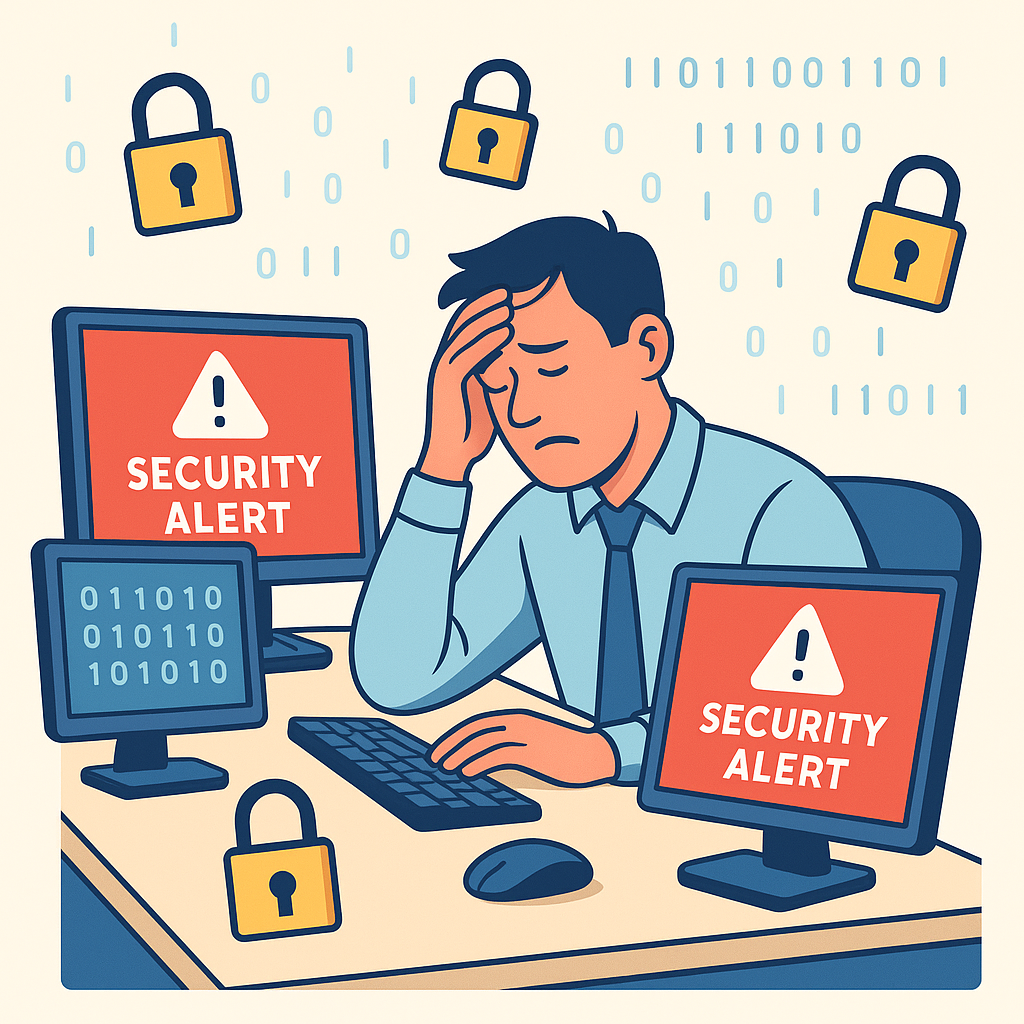Human Factors Are the Front‑Line of Cyber Defence for SMEs

TechRadar warns of burnout‑induced negligence. Security teams, whether one‑person or minimal, often drop routine tasks: patching, training and standard policy enforcement
- Published
- July 22, 2025
- Tags
- social engineering hacking scattered spider IT burnout
Cyber threats evolve.
But the underlying pattern remains clear. troubled people, not advanced malware, open the door.
1 Burnout Breeds Breach Risks
TechRadar warns of burnout‑induced negligence. Security teams, whether one person or minimal, often drop routine tasks: patching, training and standard policy enforcement.
Most successful breaches exploit known flaws. If your team is stretched too thin, these basics slip. For an SME, structured schedules for updates and drills are not optional. They are your frontline defence.
2 High‑Profile Breach, Hidden Lessons
The Co‑op incident hit 6.5 million members. While no financial data was stolen, the rollback of payment systems showed how even fundamental service models can fail under strain. This wasn’t a targeted assault on finances. It was a failure of operational resilience. Insurance, redundancy and staff awareness must extend beyond IT to everyday operations. That’s true for SMEs too.
3 Social Engineering Is Taking Priority
According to SME Cyber Insights, Scattered Spider is now weaponising human psychology. It deploys SIM‑swap and helpdesk impersonations to bypass security defences. This method targets trust and routine. SMEs must treat human interactions as perilous pathways. That means logging all helpdesk activity, verifying identity changes and training staff to question unusual requests.
What SMEs Must Do Now
- Protect People from Fatigue – Rotate duties. Set clear task timelines. Schedule refresher training and patch days.
- Expand Operational Resilience – Back up not just data but processes. Ensure staff know fallback steps for IT failure.
- Audit and Harden Help Desks – Enable MFA on help‑desk systems. Log and review access and change requests. Use validation protocols.
- Train Staff to Question everything – Run social engineering simulations. Include voice or SIM‑swap scenarios.
- Monitor health of your team – Spot signs of stress early. A worn‑out defender is an open door.
Final Thoughts
We all get overloaded with our work, it's not abnormal. But it does allow room for bad actors to manoeuvre. SMEs often believe threats are technical. They are not. They are human. Your best defence lies in disciplined execution of basics. In protecting your team mentally and operationally.
Treat burnout, breaches and manipulation as part of one story. Fix the story. Protect your org.
